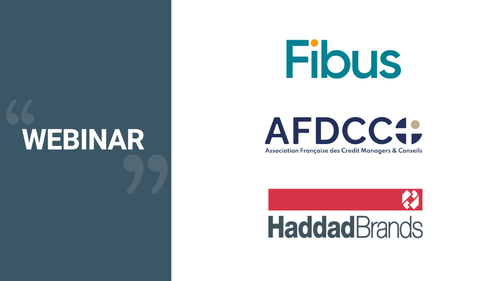

Will factoring companies continue to provide financing ?
Last week, we questioned the main French factoring companies. Teleworking has become widespread. The main French factoring companies are up and running to provide financing for their clients. They confirmed that they want to support them and maintain financing. In addition, we contacted most of our larger clients and have not, to date, noted any malfunction or delay in their Factor financing. Over the past seven days, companies have in fact massively ceded their receivables in order to obtain maximum financing from their Factor.
Will factoring companies continue to set up new financing ?
Furthermore, factoring companies are in the process of adapting their credit committee processes to 1) expand existing programmes and 2) welcome new customers.
For example, they are currently studying the measures needed to overcome possible barriers related to the lockdown (e.g., videoconference auditing, electronic signatures, etc.).
The banks have a massive role to play in financing the huge “air pocket” linked to the blockage and delay in activity. Factoring companies have and will have an important role to play in anticipating and financing the resumption of activity after the lockdown.
For example, they are currently studying the measures needed to overcome possible barriers related to the lockdown (e.g., videoconference auditing, electronic signatures, etc.).
The banks have a massive role to play in financing the huge “air pocket” linked to the blockage and delay in activity. Factoring companies have and will have an important role to play in anticipating and financing the resumption of activity after the lockdown.
What are the consequences of the Covid-19 crisis on financing such as factoring?
Certain sectors of activity, which are in great demand at the moment (e.g. food processing, pharmaceuticals, IT infrastructures, etc.), are making full use of their factoring lines. On the other hand, other sectors have suspended or are going to suspend partially or totally their activities (e.g. tourism, events, automotive, aeronautics, etc.). The companies concerned will therefore need additional bank financing to finance this period of sharply declining activity. During this period, outstanding factoring amounts are expected to mechanically decrease. However, because it is backed by an asset, factoring is the financing option that offers the most security both to the Bank, via its factoring subsidiary, and to its user.
If we look back at the 2008/2009 financial crisis that we experienced with our corporate clients and Factors partners, there was no disruption in Factors’ financing. Over a short period of time (one year), most Factors had slightly increased their financing conditions, due in particular to the increase in their refinancing costs and the regulatory requirements for return on equity capital in a period of heightened risk. However, none of our clients lost their Factor financing.
Companies that anticipate a cash requirement at the end of this confinement must start preparing for it now. In fact, we believe that it is necessary to :
If we look back at the 2008/2009 financial crisis that we experienced with our corporate clients and Factors partners, there was no disruption in Factors’ financing. Over a short period of time (one year), most Factors had slightly increased their financing conditions, due in particular to the increase in their refinancing costs and the regulatory requirements for return on equity capital in a period of heightened risk. However, none of our clients lost their Factor financing.
Companies that anticipate a cash requirement at the end of this confinement must start preparing for it now. In fact, we believe that it is necessary to :
- for non-factored companies, to study the implementation of a factoring contract in order to prepare for the strong cash-flow needs at the end of the lockdown period, and the possible insolvency of their customers.
- for companies that are currently factored, to study contractual arrangements to increase financing and study the extension of the programme to non-factored areas (export, subsidiaries, etc.),
These articles may interest you

How Chimirec unlocked the full potential of its factoring with ARI Trade, by Fibus Digital
With ARI Trade, the Chimirec Group has reduced the time spent managing its factoring operations from 4 days to 1.5 days per month — representing a total time saving of 30 days per year.
Additional benefits for Chimirec’s CFO include improved working capital, a consolidated view across 15 factoring contracts, and enhanced receivables traceability.
Additional benefits for Chimirec’s CFO include improved working capital, a consolidated view across 15 factoring contracts, and enhanced receivables traceability.

How the Credit Manager safeguards the company’s cash flow
A function at the heart of financial stability The Credit Manager’s role extends far beyond preventing bad debt: today, they act as the true conductor of the order-to-cash process, ensuring the company maintains healthy, predictable, and actively managed cash flow. We
spoke with Thibaut Robet, CEO of Fibus, a firm specialising in order-to-cash management.
spoke with Thibaut Robet, CEO of Fibus, a firm specialising in order-to-cash management.

How can credit insurance support growth in a sector under pressure?
Economic difficulties are mounting and weighing more heavily on certain sectors: how can you make the Credit Manager a business partner who supports the company's growth? Discover the testimony of HADDAD BRANDS EUROPE in the webinar hosted by Alexia Monteillet, Credit Risk Manager at HADDAD BRANDS EUROPE, and Marc Chaquès, Credit Insurance Director at Fibus, in partnership with the AFDCC.
Contact us, so that, together, we can find the best solution for financing your accounts receivable.
Write us
